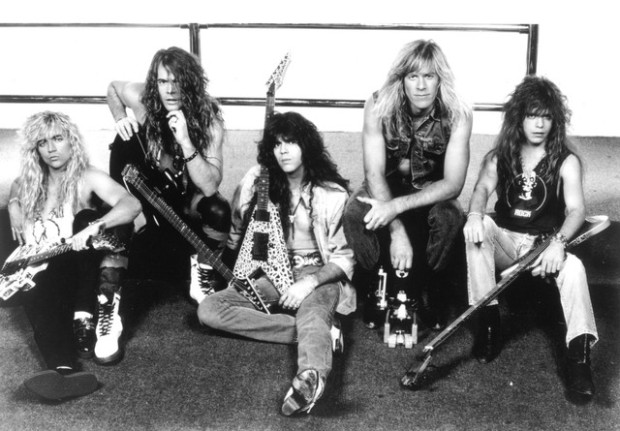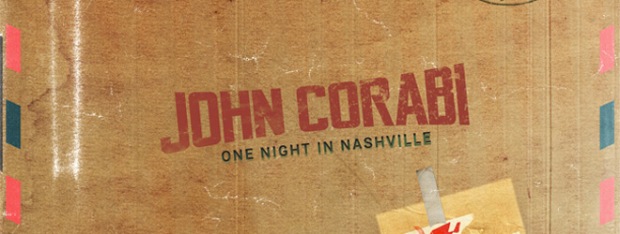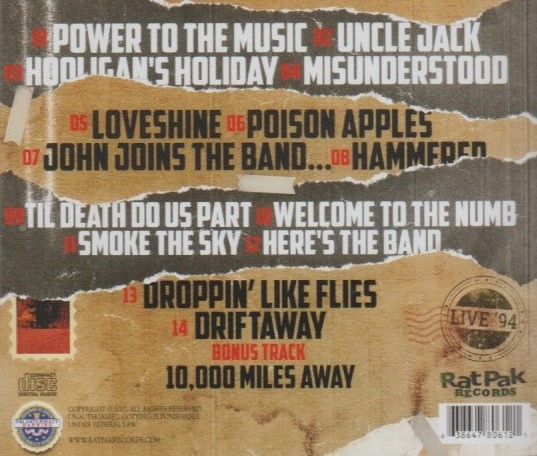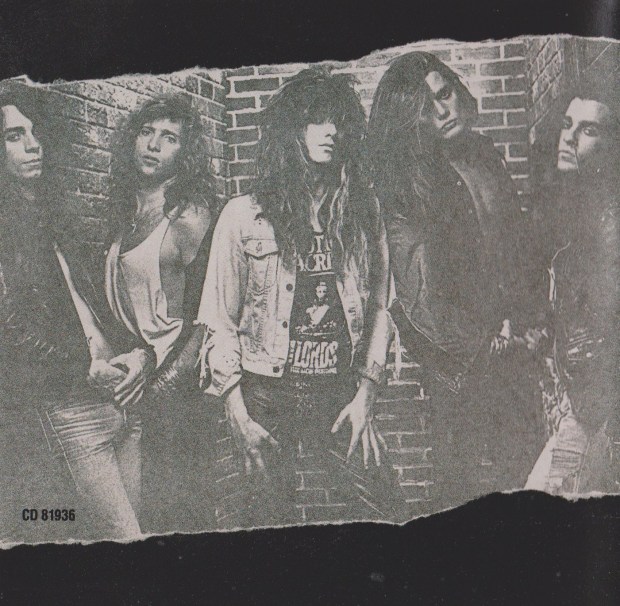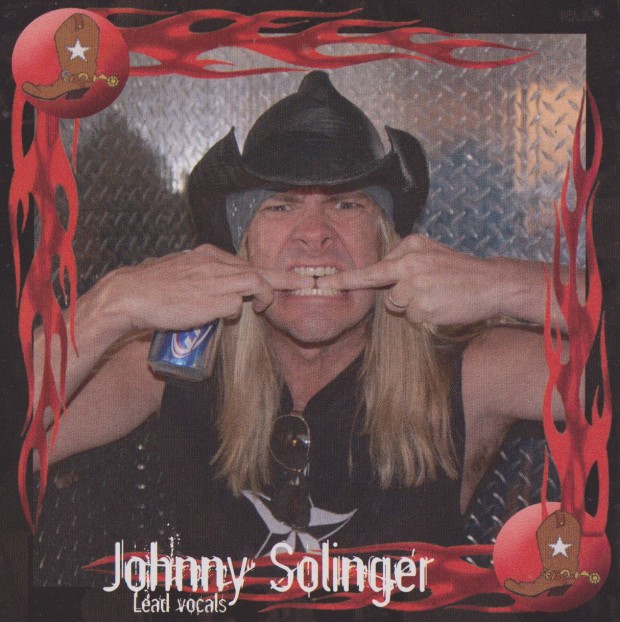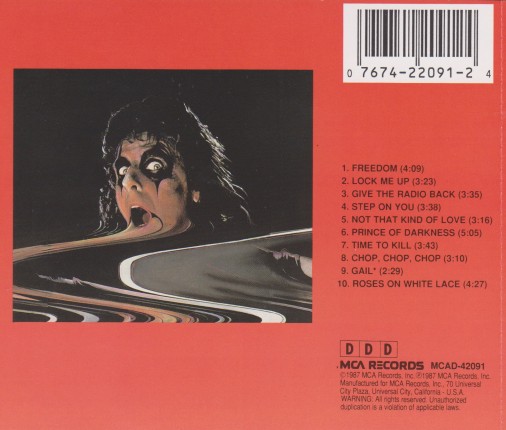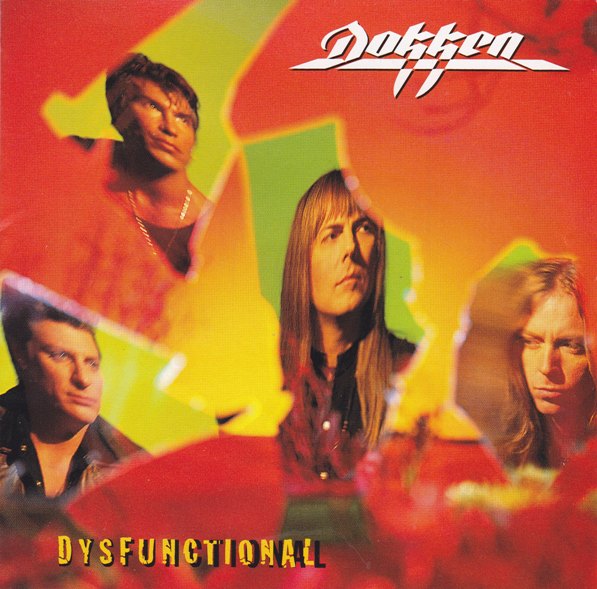 LEATHERWOLF – Street Ready (1989 Island/Polystar Japan)
LEATHERWOLF – Street Ready (1989 Island/Polystar Japan)
Leatherwolf progressed in just three albums from an unremarkable thrash band to a melodic, heavy rock quintet with a knack for a hook. They also had a gimmick: the “Triple Axe Attack”. Unlike most bands of the time, Leatherwolf boasted three guitarists. Geoff Gayer and Carey Howe handled the leads while singer Michael Olivieri played the rhythm. Their first album was just OK, but on their second they signed to a major label and had some decent production. They also wrote better tunes, and embellished their sound with keyboards and ballads.
By the third, their songwriting chops had really grown. In the end, this album is less heavy than the first two; a little more straightforward. It still retains thrash metal aspects mixed with ballads, but on the whole this album is more middle of the road. Track for track, it’s free of filler and each song has some kind of memorable hook that makes return visits a pleasure.
Traditional metal guitar harmonies and thrashing chords blend on the opener “Wicked Ways”, which careens from slow to fast and back again. Focus is solidly on the guitars, though Michael Olivieri certainly blows all the fuses on lead vocals. A great melding of styles, like an 80s Iron Maiden song fueled by nuclear fusion.
For a song called “Street Ready”, a dirty groove is most appropriate. That’s where Leatherwolf take this nasty little tune with bite. The riff recalls their single “The Calling” from the previous album. But the first single this time was the balladesque “Hideaway”. A power ballad with the emphasis on power. Singer Michael Olivieri had a great range and plenty of lung capacity. A ballad with bite.
Back to heavy, “Take A Chance” is quite thrash, but faster than the mainstream. The choppy riff could have come from an early Scorpions album, when they had sting. Keeping the pace is “Black Knight”, an instrumental thrash rocker with amazing drumming courtesy of Dean “Drum Machine” Roberts. Faster and heavier than anything since their debut.
 Back when albums had sides, side two opened with a big powerful anthem, a roll of bass, and earthshaking chorus. “I am the thunder that starts the rain.” This song must have been a killer live. Slow in pace, but the weight comes from that heavy anthemic feeling, defying the storm.
Back when albums had sides, side two opened with a big powerful anthem, a roll of bass, and earthshaking chorus. “I am the thunder that starts the rain.” This song must have been a killer live. Slow in pace, but the weight comes from that heavy anthemic feeling, defying the storm.
A second ballad “The Way I Feel” is soft by comparison, but doesn’t lack backbone. Comparable to “Share A Dream” from the last album. Not for everyone — thrash metal people should certainly avoid. Everyone else will enjoy its melodic power. Speaking of power, back in that direction is the ragged “Too Much”, careening off the rails at top acceleration.
“Lonely Road” takes us back to huge anthem territory, like “Thunder”, but faster. A soft keyboard intro is deceptive. This ain’t no ballad. This is a banger; you have to let it get going. They go full-on for closer “Spirits In The Wind”. Great tune with lots of metal guitar thrills.
In Japan however that wasn’t the closer. A bonus track “Alone in the Night” is tacked on for added value. This originated on the 1988 Return of the Living Dead Part II soundtrack (which also featured Zodiac Mindwarp and two Anthrax tunes). It has a thinner sound to it, indicating it came from a separate recording session. Not one of Leatherwolf’s better songs, but not a throwaway either. Just not as memorable, but a valuable addition.
Song for song, Street Ready is the best Leatherwolf album. Metal bands just don’t try to sound like this anymore.
5/5 stars
